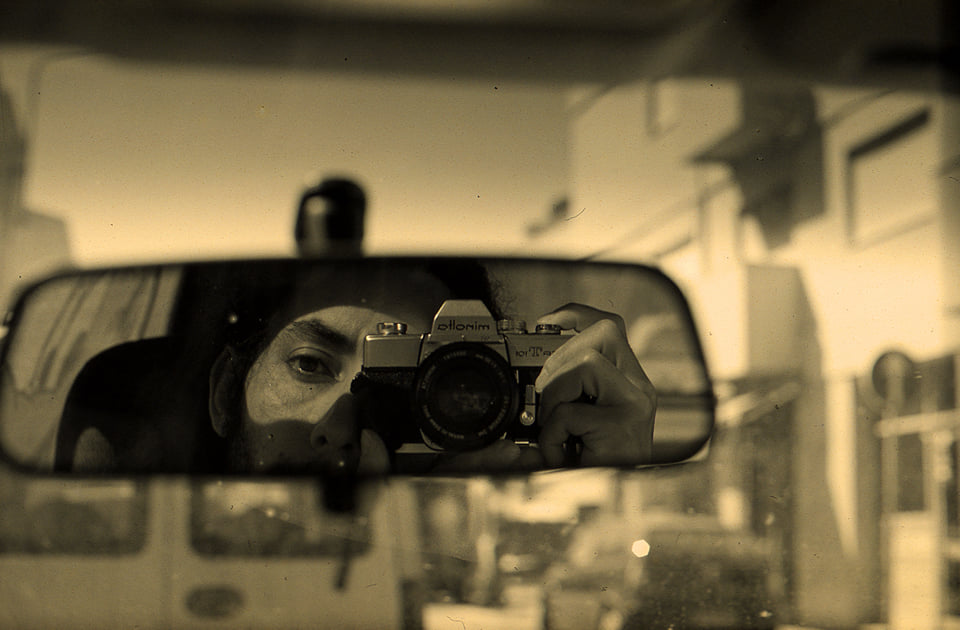Developing with plants – Ricardo Leite

A series of lectures & research workshops, filmic try-outs and presentations host by Filmwerkplaats, Rotterdam.
The goal of the project is to explore questions of environmental consciousness around analog (or photochemistry) filmmaking, and what new artistic potential can be released from this approach.
Working with analogue film involves a large number of chemical processes. To make the invisible (latent) image that is formed by the exposure in the light-sensitive layer of photographic film material visible, a number of "development" steps are necessary. This laboriousness is an intrinsic part of the changed process of making film, the transformation from a once industrial production process to an artistic, hands-on (Do-It-Yourself) ‘alchemically’ oriented production process. It is this fascination with materials and processes that increasingly characterizes analogue film culture. Film as an empirical and tactile research field, a photochemical playground!
With the Photographic Garden project, Filmwerkplaats wants to research and develop photochemical processes that do not burden the environment. We use processes based on plants and home-garden-kitchen ingredients with low toxicity. Alternative chemistry that will yield a different, new film aesthetic. One in which the (chemical) components and their origin come to the fore and the physical processing of the (film) emulsion during the DIY process is emphasized.
The 6 online public lectures are open to anybody with an interest in film. They are intended as practical modules, a kind of starters guide to practice the topics discussed hands-on at home. We want to encourage personal experimentation and try-outs through formulas and processes provided during the lectures. We will provide the commitment to making sure these techniques, tricks and handy tips are openly available to all who might need them. Therefore all the activities will be available online as a free resource publication after the project ends.
Topics of Lectures:
Alternative image making processes – Lecturer: Hannah Fletcher
Silver-gelatin (light sensitive) emulsion making – Lecturer: Esther Urlus
Developing with plants – Lecturer: Ricardo Leite
Tinting toning with plants and other materials from nature – Lecturer: Joanna Mayes
Pioneering to capture an image with light – Lecturer: Mark Osterman
Regenerating outdated film materials – Lecturer: Adrian Cousins
These lectures will be hosted on Zoom, you can register here in advance. After registration, you will be given an access code to log in as a listener (mute). Questions can be asked via the chat function. Tickets are free.
Tickets:
Lecture link: https://zoom.us/j/99965813266?pwd=WVZMbWxQOXRSOXBOVW5oR2U0ZEN2dz09
Ticket buyers will find the code to join the zoom on their ticket.
PLEASE SAVE THIS ZOOM LINK TO USE WITH YOUR PASSWORD!
28 August 2021 Saturday 16:00-18:00
Developing with Plants – Lecturer: Ricardo Leite
It is possible to develop photographic film with plants. Flowers, seeds, or leaves, in a combination of household ingredients like washing soda (sodium bicarbonate or sodium carbonate) and vitamin C (ascorbic acid) can be an effective biodegradable substitute to toxic synthetic developers. Basically what we are looking for in a potential developing agent is its capability to donate an electron to the silver halide emulsion that creates the image in the acetate film. Plants and their components that are rich in terpenoid or phenolic compounds are excellent candidates to work as an efficient developing agent. Spearmint contains it in the form of catechol, Thyme contains thymol, Oregano contains catechol and hydroquinone, the hyacinth flower contains hydroquinone, but these are just a few plants in a huge list. The magic happens by finding the most accessible and easiest plant to work within your area.
Ricardo Leite, filmmaker from Portugal, conducted research at the Faculty of Fine Arts-University Porto into a combination of organic chemistry with simple and innovative techniques for application in photochemical processes. Not only in response to ecological issues, but also to create opportunities for (experimental DIY) filmmakers in countries where there is no access to conventional chemistry and no waste management policy.